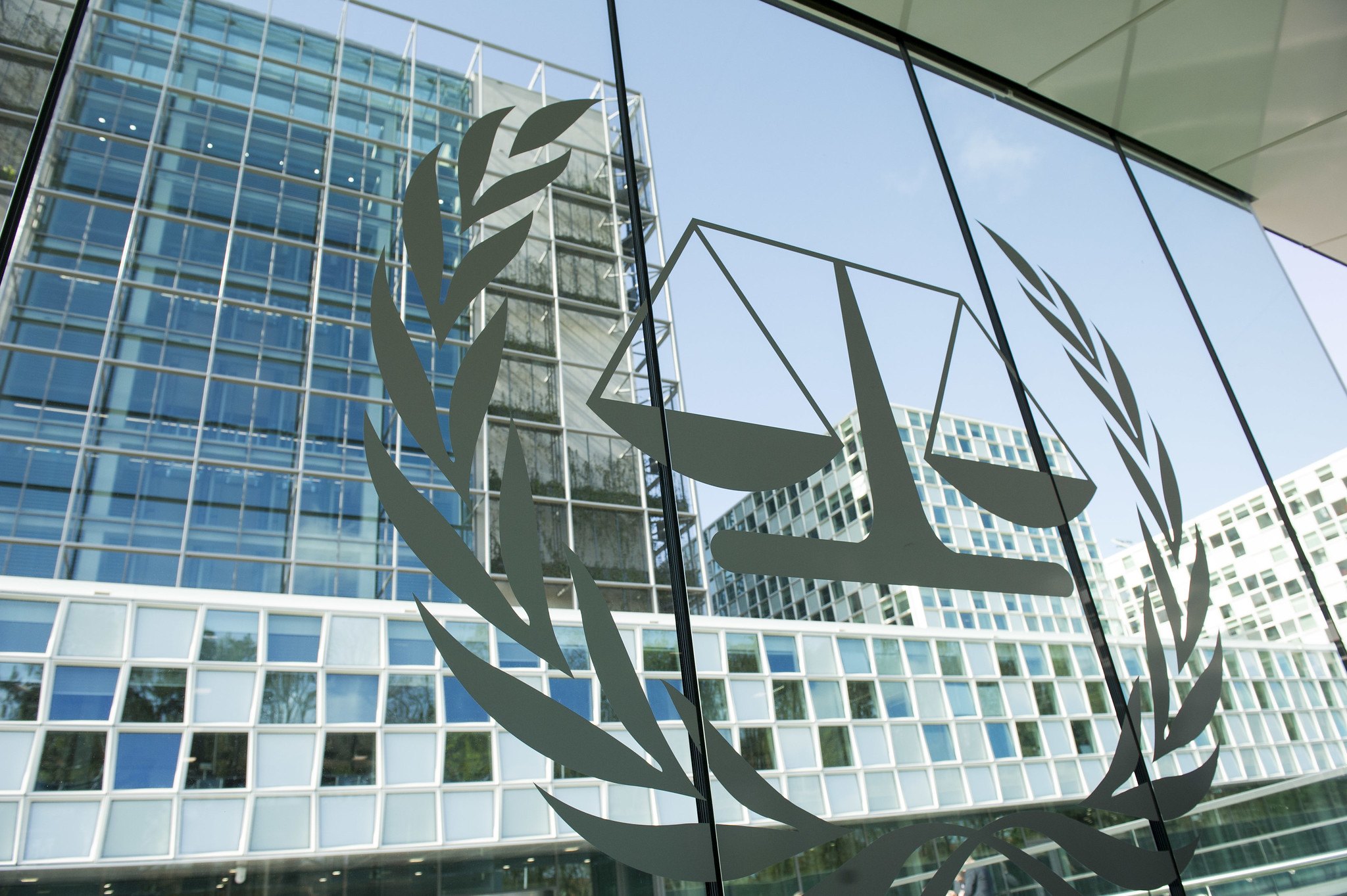Chinese Social Media Cancels Companies Over Xinjiang Cotton Boycott
Lawfare’s biweekly roundup of U.S.-China technology policy and national security news.

Published by The Lawfare Institute
in Cooperation With

Two weeks after the European Union and China exchanged sanctions over the human rights situation in Xinjiang, the same conflict is now playing out in a public relations war between Western fashion brands and Chinese social media. H&M, Nike and others have become the targets of a viral campaign on Chinese social media after previous pro-Uighur statements resurfaced online. H&M and the other companies have seen their products boycotted by Chinese consumers in response to the companies’ own disavowals of Xinjiang cotton.
The social media controversy began shortly after the announcement of coordinated sanctions by the EU, the U.S., the U.K. and Canada against Chinese officials and institutions accused of violating human rights in Xinjiang. Xinjiang is a major cotton-producing region of China, and a December 2020 report by German researcher Adrian Zenz argues that up to half a million Uighurs have been forced to pick cotton. The Better Cotton Initiative, an independent organization promoting sustainable cotton, refuted the forced labor claims on March 26, stating that it had “never found a single case related to incidents of forced labor” in Xinjiang. However, in October 2020, the organization decided to cease operations in the region, citing an “untenable working environment.”
In September 2020, H&M cut ties with an independent cotton supplier in Xinjiang over concerns about “forced labor and discrimination of ethnoreligious minorities.” Days after the recent EU sanctions, the Chinese Communist Youth League reposted a November 2020 statement from H&M that the company does not source products from Xinjiang. The Communist Youth League commented, “Spreading rumors to boycott Xinjiang cotton, while also wanting to make money in China? Wishful thinking!” This post kicked off a larger boycott of Western brands including H&M, Nike, Adidas and Burberry. Chinese celebrities ended their affiliations with the brands, and popular online retailers including Alibaba and JD.com stopped carrying their products.
So far, most brands have attempted to walk a middle way between pressure from Chinese consumers and pressure from Western human rights advocates. H&M removed the old statements from its website and issued a new statement without mentioning Xinjiang, Uighurs, cotton or the forced labor claims. The brand Hugo Boss initially issued a statement saying it would continue to “purchase and support Xinjiang cotton” but later deleted the statement, claiming it had been unauthorized. In a later statement, the company said that “so far” it has not procured goods from Xinjiang, but it values its relationships with Chinese partners. In a post on Human Rights Watch, the organization’s China director, Sophie Richardson, calls the companies’ capitulation a “litmus test” on their commitment to human rights as they face pressure from both investors and consumers.
The online support for Xinjiang cotton may have created some unexpected difficulties for Chinese Communist Party (CCP) censors. The flood of calls to “support Xinjiang cotton” left some Chinese internet users, who were unaware of the controversy of Uighur labor, asking why Xinjiang cotton was under attack in the first place. On March 29, a U.N. working group published a new report linking more than 150 companies to forced labor in the region. Also this week, Secretary of State Antony Blinken highlighted the ongoing “genocide” in Xinjiang while announcing the release of the U.S. State Department’s annual human rights reports.
In response to U.S. “hypocrisy” over human rights, China’s State Council Information Office published its own report last week on human rights violations committed by the United States in 2020, noting police brutality, racism and U.S. failures in response to the coronavirus pandemic.
China’s “International Order” Implicates Tech
Director Yang Jiechi remarked in his opening statement in Anchorage on March 18: “What China and the international community follow or uphold is the United Nations-centered international system and the international order underpinned by international law, not what is advocated by a small number of countries of the so-called ‘rules-based’ international order.”
Chinese Foreign Minister Wang Yi’s recent tour of the Middle East served as an occasion to lay out the Chinese version of international order and its corresponding principles of national sovereignty. In his March 25 meeting with Saudi Crown Prince Mohammed bin Salman, State Councilor Wang reiterated the need for the two countries to safeguard an international order based on international law and noninterference in other countries’ internal affairs. The two officials also discussed the possibility of cooperation in advanced technologies.
Western observers are increasingly worried about Russia and China’s growing control over the direction of the United Nations, where China exerts much of its international influence, including on internet policy. China and Russia have been working together to promote the ideal of “cyber sovereignty,” which stands for greater national control over internet content, as opposed to the “internet freedom” agenda espoused by the United States. In 2019, Russia began spearheading the United Nations’s global treaty against cybercrime, an effort that passed with Chinese support.
Russian and Chinese policies have converged in a number of areas. In March, Russia and China’s space agencies signed a pact for joint lunar exploration. Recently, the two countries have separately developed anti-satellite technologies and jointly introduced a U.N. resolution banning weapons in space. Huawei, which has faced regulatory headwinds in Europe, Britain and the United States, is making gains in Russia. At least one observer believes that Russia is adopting China’s censor-heavy approach to internet regulation in order to maintain domestic stability. In March, the two countries celebrated the 20th anniversary of the China-Russia Treaty of Good-Neighborliness and Friendly Cooperation; their representatives promised greater intelligence sharing and cooperation against “color revolutions”—a phrase associated with unrest in Russia’s periphery (Georgia, Ukraine) in the early 2000s. The phrase is now being applied by Chinese policymakers to possible future demonstrations and disruptions.
The Chinese, Russian and Iranian governments have grown closer in the digital realm in recent months. Russia and Iran signed an agreement in January that provides for greater cooperation in cyberspace and transfer of cyber-related technologies. On Wang’s trip this March, the two countries signed an agreement promising Chinese investment and military technology transfer in exchange for Iranian oil.
Some American and European commentators worry that Chinese rules on cybercrime will tend to allow otherwise illegal Chinese actions. To take a recent example, Chinese actors are now suspected of an October 2020 cyberattack on state power companies in India, which crippled Mumbai’s power grid. Likewise, China feels the U.S. rules-based order provides unspoken carve-outs for Western action. On March 23, China and Russia urged the U.N. Security Council to convene a summit to discuss the United States’s “destructive” international actions.
Chinese Government Plans State-Backed Company to Oversee Personal Data
Last week, the People’s Bank of China reportedly floated an idea to create a state-backed company to oversee the personal data gathered by Chinese tech platforms. The proposal was presented as one of a menu of policy options to help Beijing regulators gain more control over consumer data gathered by companies like Alibaba, Tencent, ByteDance and Meituan. China’s largest e-commerce and payment platforms would be the initial shareholders in the joint venture, although government regulations would appoint top executives in the state-backed enterprise.
The possible joint venture is the latest development in China’s spree of regulations on its domestic tech sector. In recent weeks, regulators have focused on Chinese tech companies’ data. In the CCP’s five-year plan released in early March, China’s tech giants were encouraged to make key data available to the government and the tech sector in areas including search, e-commerce and social media. This data sharing would “promote the healthy development of the sharing and online economies” in line with CCP priorities. China’s laws already require Chinese companies to share some data with the government, although there is debate over the scale, scope and practical effect of those legal requirements. Existing Chinese data privacy law gives Chinese consumers some control over their data. However, those privacy laws could prove to be a hurdle for data sharing or require changes to enable the creation of the state-backed company.
Other News
WHO Report on Coronavirus Origins Released
On March 30, the World Health Organization (WHO) released a report on the origins of the coronavirus, following a WHO team’s delayed and reportedly obstructed visit to Wuhan, China, where the first cases of the virus were detected.
The report did not reach a definitive conclusion on the origin of the virus but said that it most likely transmitted from bats to small mammals and then to humans, possibly on a farm.
The report did not rule out the theory that the virus, which causes the respiratory disease COVID-19, escaped from a lab, though the official report did not recommend further investigation into the possibility. However, in a subsequent statement, WHO Director-General Tedros Adhanom Ghebreyesus said, regarding “the possibility that the virus entered the human population as a result of a laboratory incident,” that “[f]urther data and studies will be needed to reach more robust conclusions.”
Immediately afterward, the U.S. State Department released a joint statement with the governments of Australia, Canada, the Czech Republic, Denmark, Estonia, Israel, Japan, Latvia, Lithuania, Norway, the Republic of Korea, Slovenia and the United Kingdom, expressing its concern that the international experts on the WHO team “lacked access to complete, original data and samples.” Secretary of State Blinken said in an interview that he felt “real concerns about the methodology and the process that went into that report, including the fact that the government in Beijing apparently helped to write it.”
Some scientists have advocated further analysis of blood samples in East and Southeast Asia, as well as deeper investigation into the possibility of an intermediary mammal. The WHO itself has called for more studies on the subject.
As Bill Bishop put it in Sinocism last week: “The WHO report is out, no one is happy, and we will probably never know the origins of COVID-19.”
ByteDance Weighs IPO
Despite U.S. and Chinese regulators cracking down on Chinese tech giants, ByteDance is edging closer to an initial public offering (IPO) of some of its businesses, including the popular video-sharing app TikTok and the Chinese equivalent, Douyin. The company is currently valued at $250 billion in private trades ahead of a potential IPO, more valuable than companies such as ExxonMobil and Coca-Cola. ByteDance recently hired a new chief financial officer, Chew Shou Zi, who oversaw a successful IPO for Xiaomi two years ago, fueling public speculation that at least one IPO is imminent.
On April 1, Chinese sources reported that ByteDance is considering an IPO of Douyin on either the New York or Hong Kong stock exchange. ByteDance’s revenue in 2020 is estimated to have reached $37 billion, four times that of rival Kuaishou Technology, which debuted its IPO in Hong Kong in February. A Douyin listing would represent a windfall for ByteDance investors, including several large American investment firms.
In September 2020, the Trump administration issued an executive order that declared ByteDance a national security threat, attempted to ban TikTok and required ByteDance to divest the application. The Biden administration, however, has paused those orders while it reviews the national security implications of TikTok.
U.S.-listed Chinese tech stocks have been down sharply since the announcement of a potential joint venture between the Chinese government and the firms for the oversight of data (though this is in part due to a forced liquidation by the U.S. family investment office Archegos Capital). A record 76 companies canceled or postponed their IPOs on Shanghai Star Market in March. Before the crackdown on Alibaba began in November 2020, only 12 companies had done so.
Commentary
For Rest of World, Peter Guest explores the strategies that Chinese state-backed hackers use to spy on Uighur exiles across social media sites.
Jordan Brunner provides a primer for Lawfare on the Chinese tech companies challenging the lawfulness of their designation as “Communist Chinese military companies” by the U.S. Department of Defense.
Jonathan E. Hillman published a new report for the Center for Strategic and International Studies on the emerging competition between the U.S. and China for control of global networks, particularly in developing economies.
The Taiwanese government charged that the U.S.-China trade war has exacerbated China’s efforts to steal technology from Taiwanese firms, especially semiconductor manufacturers.
Professor Charles Hill, who passed away March 27, was remembered in the Wall Street Journal with a quote from a 2012 interview: “[T]he European vision is we’re just going to be nice … [and] people will follow our lead. The Chinese view is why should we not do what we want to do with these little people who used to pay us tribute?”
The Wall Street Journal printed a feature on China’s digital currency and its implications for U.S. policy. Emily Parker at Politico discusses the rollout of digital yuan, which is now predicted to have 1 billion users within a decade.
For the Brookings Institution, Mark Muro and Yang You outline a strategy to counter China’s economic influence by rebuilding the American heartland.
Ishan Sharma of the Federation of American Scientists released a report on how the U.S. can counter digital authoritarianism abroad by embracing “more responsible digital surveillance” domestically.
A top Canadian official has called for greater coordination among the “Five Eyes,” particularly on sensitive technologies.
In Foreign Affairs, Oriana Skylar Mastro analyzes Chinese policy vis-a-vis North Korea.






